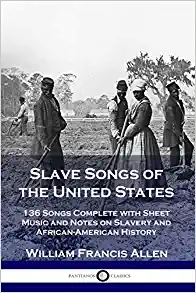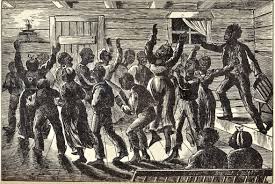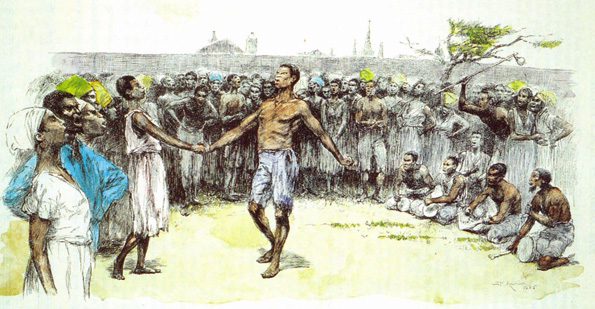Thesis
Negro Spirituals, which are derived from African Spirituals, are monumental to the development of African American music. While negro spirituals are seen as ancient today, negro spirituals indirectly influenced all genres of African American music since they are ingrained in our history, allowed for communication amongst one another, and kept slaves alive during the hardest times.
History of Negro Spirituals
The folk songs known as the American Negro Spirituals were written by enslaved Africans after they arrived in North America between 1619 and 1860.The songs written and performed by people who were enslaved in North America tell their stories of life, death, religion, optimism, freedom, and survival with dignity, commitment to the cause, and even joy. Originally passed down orally in the plantation fields, churches, and camp meetings, these tunes and tales are now being performed on concert hall stages and in recital series all over the world.
Influence of African Music
The importance of religion was emphasized in African cultures by way of music, ritual, and dance. Rhythmic pastimes became a symbol of community to the African people as well as a symbol of solidarity. Melodies are typically brief and straightforward. Short melody fragments are repeatedly used in African music. They can be changed at will by singers or musicians, making the performance into a theme with numerous variations. During a performance, one vocalist could start to improvise or create a unique melody while the other singers carry on with the original song. Multiple voices frequently sing various melodies simultaneously. Africans also round-sing. Short melodic motifs that are repeated repeatedly may serve as the accompaniment. One example of this is the ring shout. The ring shout called for its participants to gather in a circle with drums while members would participate in vocal praises as well as hand clapping and knee slapping. It is traditions such as this one that has allowed religion and music to thrive throughout the African Diaspora. Melodic gatherings continued to be the norm throughout genarations. It became a sort of universal language throughout the continent. Every region had hundreds of different languages so the common denominator became rhythm. The need for music and religion became critical when slavery began.
How Negro Spirituals were used to Communicate
Music had a role in how people communicated with one other without the luxury of education. Songs coded with secret messages were used to convey information about the journey North because it was unlawful to teach slaves to read or write in the majority of southern states. Some songs offered advice on when, when, and how to flee, while others issued cautionary statements about potential dangers. It is uncommon to find first-hand proof because transporting slaves to freedom was against the law. Some historians are sceptical about the origins of these songs because there is no written documentation of them or their hidden codes. Others, however, consider them to be a part of the rich oral legacy of African American folk songs that still has an impact on modern American music.
How Negro Spirituals helped Slaves
Singing is a superpower, resonating through the body, changing the environment, and communicating beyond the spoken word when spoken words are difficult or insufficient vessels. For the Africans who were slaves in the United States, this superpower was essential. Both African music and songs created in response to the horrors of chattel slavery gave them comfort and fortitude. Song performed crucial functions, such as recreation, prayer and worship, and work songs or field hollers, from forced removal from Africa, the perilous middle passage, through cruel treatment on the plantation. Singing offered social and theological commentary in addition to its musical features. They were all centers of cultural exchange for people from many African tribes.
The long and dangerous journey from Africa was full of misery, fear, greif, and despair. Men, women, and children were shackled, beaten, and tormented the entire duration of the trip. When they reached their new land, their only form of communication became music. They adopted traditions similar to the ring shout in order to express their emotions and continue their worship. Traditions involving both music and religion became the beacon of light for enslaved people, sort of like an escape from the gruesome reality they lived in. Ultimately, traditions and rituals in African cultures became not only a part of life, but something that has been passed on to each and every generation. These practices helped Africans and African Americans through the hardest times in their lives. Without these forms of expression, it is hard to say what the world would look like today.
Additional Images


Conclusion
Ultimately, the influential sound known as Negro Spirituals has been the soundtrack to life for African Americans since the beginning of time. Dance, instrument, and religion were all aspects of life that emphasized the importance of the Negro Spiritual. Music allowed for slaves to tolerate their servitude during the horrors of slavery since the spirituals they sung reminded them of home. The early slaves were able to hold on to a fraction of their identity once they reached American shores thanks to the passing down of traditions. Negro spirituals ultimately evolved into slave songs, and as time progressed, the different genres of music we know and love today.


